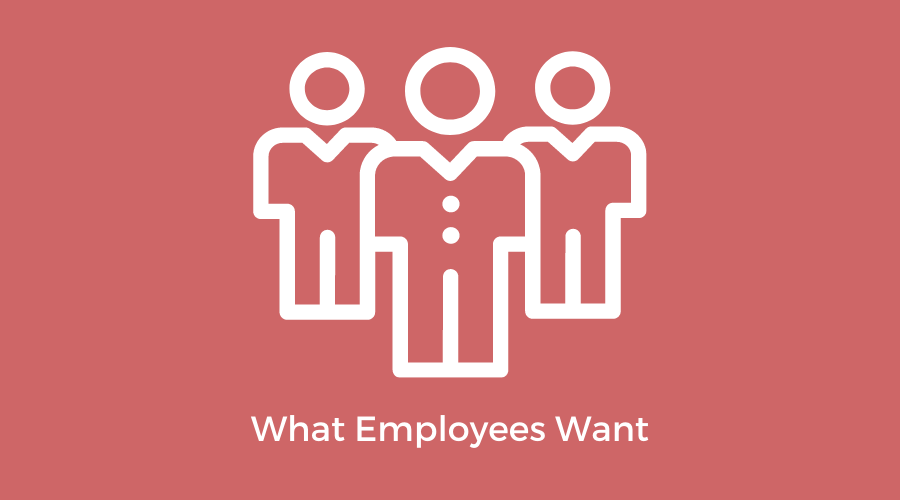The global pandemic is changing what employees want in a prospective job offering. According to a new study from Citrix Systems, workers believe flexible models, digital technology, diversity and inclusion and learning and development will drive the future of work. And they will seek opportunities with companies that share their vision and give them the space and tools they need to succeed and advance their careers.
“As the economy gears up again and the job market begins to make a recovery, we’re likely to see a surge in people seeking new roles,” said Tim Minahan, Executive Vice President of Strategy, Citrix. “But the pandemic has forever changed the way employees view and approach work, and if businesses want to attract and retain the talent they need to move forward tomorrow, they must understand their mindset and desires and develop plans to accommodate them today.”
In the Talent Accelerator, Citix surveyed 2,000 knowledge workers and 500 HR Directors in large, established corporations and mid-market businesses based in the US.
Among the key findings?
Workers Want to Be Digital Nomads
Now, more than ever, employees want flexibility in where, when and how they work. In fact, 88 percent of those workers surveyed as part of the Talent Accelerator said that when searching for a new position, they would look for one that offers complete flexibility in their hours and location. And 76 percent believe that employees will be more likely to prioritize lifestyle over proximity to work, even if it means taking a pay cut. Other findings:
- 83 percent of employees and 69 percent of HR directors think that workers will be more likely to move out of cities and other urban locations if they can work remotely for a majority of the time.
- 78 percent of workers and 67 percent of HR directors predict that the geographical decentralization of organizations will result in the creation of new work hubs in suburban/rural areas in the next 12 months.
In addition, the majority of employees surveyed are of the opinion that flexible work models will ultimately become the norm in the year ahead.
- 83 percent predict that, in response to global skilled talent shortage, companies will leverage flexible work models to reach out to suitable candidates no matter where they live. Yet only 66 percent of HR directors feel the same.
“As the global battle for talent heats up, companies will need to embrace more flexible models for work that allow them to meet employees where they are in order to position themselves to win,” Minahan said. “Companies that leverage technology to enable remote work can not only attract hard-to-find talent, but increase employee engagement and boost their productivity. And this research proves it.”
Virtual Reality Will Bring Workers Closer
While the pandemic and the remote work mandates associated with it have physically separated workers, technology is proving its worth and keeping them connected, engaged and productive. As the Talent Accelerator discovered:
- 89 percent of employees believe that technology makes workers within their organization more productive.
- 86 percent of employees and 69 percent of HR directors report that business leaders in their organization are using technology to collaborate effectively and innovate.
- On average, around two thirds of employees and HR directors say they feel more connected to their direct manager, CEO, senior management team, and peers when working remotely than when working in the office.
- 73 percent of employees and 72 percent of HR directors think the increased use of technology in the future will break down hierarchies and lead to more open communication with business leaders and senior management teams that may advance their careers.
“Organizations that provide employees with digital tools that remove the friction from work and enable them to be and do their best are the ones that will ultimately thrive,” Minahan said. “Because when employees feel empowered by the solutions they use rather than hamstrung by them, they can focus, innovate and deliver value.”
Outcomes over Output
In the future, companies will need to rethink how they measure productivity because traditional metrics – and views that real work can’t get done outside the office – will no longer cut it. Modern employees want to be measured on the value they deliver, not the volume. And they expect to be given the space and trust they need to do their very best work, wherever they happen to be.
- 86 percent of employees said they would prefer to work for a company that prioritizes outcome over output, but just 69 percent of HR directors say that their company currently operates in this way.
- 69 percent of workers say they are more productive – by an average of 72 percent – when they feel their employer trusts them to get the job done without monitoring their progress; while 51 percent of HR directors think that their organization would be more productive as a whole if their employer/senior management took this stance.
“Work is no longer about getting the most out of people, but the best,” Minahan said. “Forward-thinking companies recognize this and will focus on designing people-centric experiences that unlock the full potential of their employees and empower them to deliver transformative results.”
Diversity Matters to Employees
Diversity isn’t just a boardroom agenda item. As the Talent Accelerator reveals, employees and HR directors alike believe it will be a defining feature of the future workforce.
- 86 percent of employees and two-thirds of HR directors believe that a diverse workforce will become even more important as roles, skills and company requirements change over time.
- 78 percent of employees and 69 percent of HR directors believe that neurodiversity is increasingly recognized in their organization and will drive competitive advantage in the future.
“People want to work for companies where they can pursue their passions and explore, create and innovate alongside individuals with different perspectives to deliver meaningful outcomes,” Minahan said. “And as we progress and create a world where there is more equity and opportunity for all, companies must focus on creating diverse and inclusive environments in which employees can be their authentic and whole selves, take risks and are empowered to contribute to the business.”
We live in the most uncertain of times. But as Minahan notes, “One thing is clear: talent will be critical to not only recovering from the pandemic, but emerging stronger and better.”


